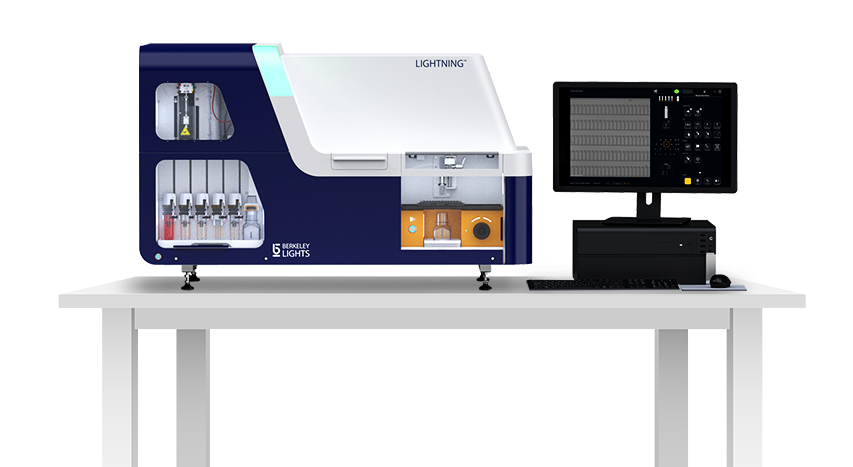Channels
Special Offers & Promotions
Optofluidic Platform to Aide in Immunotherapy Development
Berkeley Lights, Inc. (BLI), the leader in digital cell biology, has announced the launch of the Lightning™ optofluidic platform, which directly visualizes phenotype and function of 1000s of T cells in days to help scientists address challenges in developing cancer immunotherapies.
The product was showcased at the upcoming 34th Congress of the International Society for Advancement of Cytometry (CYTO) in Vancouver, Canada from June 22 to 26.
Over the last decade, scientists have advanced their understanding of immune cell function in many contexts, including cancer. Progress, however, has been slow because identification of immune cell functional signatures requires time consuming processes that average individual cell behaviors and interactions.
“Analysis of T cell function has largely been based on assessing the activity of an entire population of cells, which reduces the resolution of our results,” said Alan Ashworth, PhD, FRS, president of the Helen Diller Family Comprehensive Cancer Center. “Deeper insights are needed to let us see differences that enable us to draw more informed conclusions about T cell function. This will improve our understanding of cancer immunotherapeutics.”
The Lightning platform allows scientists to easily visualize phenotype and perform functional analysis on 100s to 1000s of individual cells simultaneously on a single platform in just a few days. Using Berkeley Lights’ proprietary optofluidic technology, individual T cells can be loaded into NanoPenTM chambers with other cell types to assess cell-cell interactions, cell surface phenotype, cytotoxicity, and cytokine secretion, yielding a more detailed picture of individual cell function within a population. The entire process is digitally recorded for visual confirmation of results and on-instrument data analysis. The platform is also designed to overcome one of the major hurdles to most existing cellular assays – destruction of the cell during analysis – by enabling scientists to recover live cells after completion of functional assays.
“With the new Lightning platform, scientists across the research and development pipeline, from academia to top pharmaceutical companies, can more precisely and quickly design, build, and test new assays to uncover the function of T cells, speeding their efforts to improve cancer immunotherapies,” said Eric Hobbs, CEO at Berkeley Lights, Inc. “Lightning is an agile desktop platform built for scientists who push the boundaries of individual cell analysis and we believe this is a key step in our goal of democratizing digital cell biology.”
Media Partners



